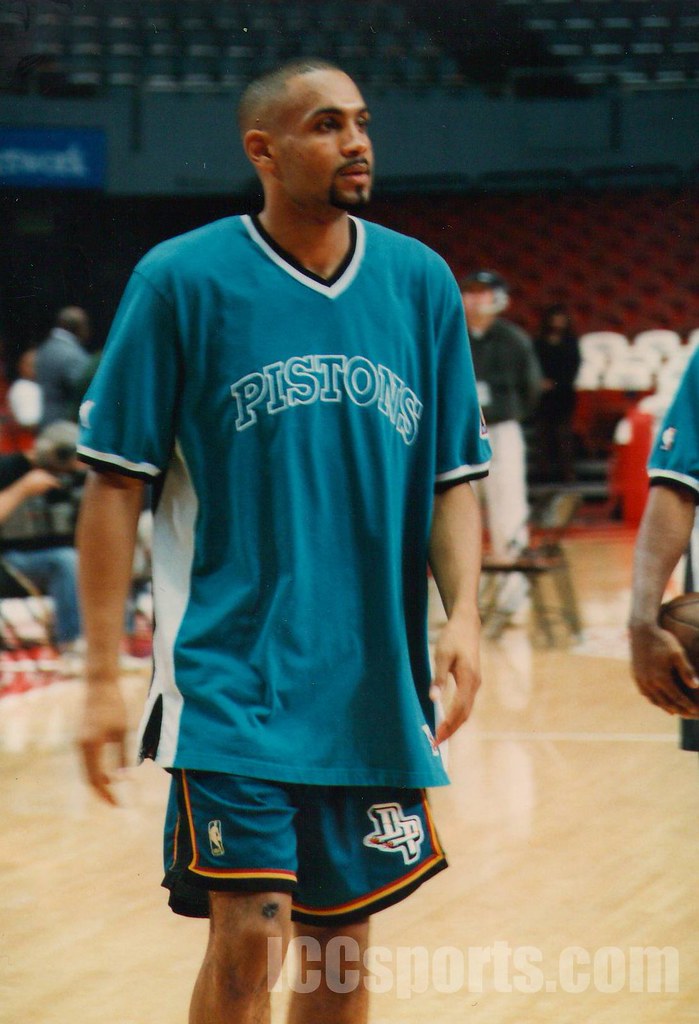Throughout the years, the term “Next Jordan” has been given to several NBA prospects and players. While probably no one will ever resemble or surpass Michael Jordan’s legacy in the NBA, it is still interesting to scout out who will be the next face of the league for the next generation. While some guys were close to Jordan in generational talent like LeBron James and Kobe Bryant, there were also some big lowballs, like Andrew Wiggins and Felipe Lopez. However, before The Black Mamba, there was one player who, in 1994, was believed to replace Michael Jordan, in both popularity and talent. That man was Grant Hill.
Grant Henry Hill was selected third overall in the 1994 NBA Draft by the Detroit Pistons. Hill was an All-American and two-time NCAA Championship-winning small forward at Duke University. He came from a family of athletes as his father, Calvin Hill, was an All-Pro running back in the NFL. Grant was born in Dallas, while his father was a member of the Cowboys. Hill came into a very peculiar time in the NBA that fit him perfectly.
First, Four years had passed since the team had won a championship, and the “Bad Boys” era was coming to an end. John Salley was traded to the Miami Heat in 1992, 2-time Defensive Player of the Year, Dennis Rodman, was dealt to the San Antonio Spurs prior to the 1993-1994 Season after requesting a trade, and Bill Laimbeer and Isiah Thomas were all forced to retire due to injuries in 1993 and 1994 respectively. Second, early last season, Michael Jordan announced his retirement from the NBA following the Bulls’ first three-peat and the murder of his father.
No one knew what would come next for the NBA, as Jordan had also just recently taken the “face of the league” torch from Magic Johnson and Larry Bird. All eyes were on Hill from the beginning of his college days, and into his rookie campaign. In his first season, Hill put up 19.9 PPG, 6.4 RPG, 5 APG, and 1.8 BPG, taking home Co-Rookie of the Year with Jason Kidd of the Dallas Mavericks. Hill also became the first-ever rookie in the four major professional sports leagues to lead all-star fan voting. Even though Hill was one of the best young players the league had to offer, he never really had that good of a supporting cast while in Detroit. Some of his best teammates include an aging Joe Dumars, Jerry Stackhouse, Lindsey Hunter, and Allan Houston to name a few. In March 1995, Michael Jordan returned to the NBA. This stunted Detroit’s success even further. The Eastern Conference was already extremely competitive in the 90s, but Jordan returning to Chicago would only make it stronger.
Detroit made the playoffs four times during the Grant Hill era, however never made it past the first round, and only won two total playoff games. By the age of 28, Hill had made both the All-NBA and All-Star teams five times. Tragically, Hill’s peak was also the direct beginning of his downfall. The 1999-2000 Season was, statistically, Hill’s best season. In a game against the Philadelphia 76ers, shortly before the playoffs, Hill sprained his ankle. An ankle sprain, for the most part, isn’t too big of an issue, and Hill was very healthy in his last few seasons. The issue was, Hill didn’t rehab long enough or correctly and played in the Piston’s first-round series against the Miami Heat. Hill aggravated the ankle and was forced to leave Game Two, his final game for the Pistons. Hill couldn’t play in Game three and also had to leave the 2000 US Olympic Team, because of the injury.
In the 2000 offseason, Detroit chose to move on from Grant Hill, as his injury and age were a potential threat to the team’s success. He was traded to the Orlando Magic as a sign-in-trade for Chucky Atkins, and future Defensive Player of the Year, Ben Wallace. Joining the Magic, Hill teamed up with Tracy McGrady, in what was supposed to be the next great duo. That potential league-shaking duo failed to meet expectations, as Hill’s ankle still wasn’t completely healing. From 2000 to 2004, Hill had only played 47 games and had to have 5 ankle surgeries performed on him. Despite this, Hill was still pretty efficient in those 47 games and was even voted in as a starter in the 2001 All-Star game, despite playing only 4 games.
In 2003, Hill underwent another ankle surgery, where his ankle was re-fractured and realigned with his leg bone. Days after this surgery, Hill was hospitalized for a week after developing a 105° Fever from a potentially deadly MRSA infection the surgery caused. Because of this, Hill was forced to sit out from the 2003-04 Season. When he returned in 2004, Tracy McGrady was traded to the Houston Rockets for Steve Francis, however, Orlando also gained Dwight Howard in the Draft. Hill had quite a comeback year, was voted in as an all-star starter for the last time in his career, and won the NBA Sportsmanship Award. Statistically, this was Hill’s last great season.
Hill’s injury struggles began to die down after 2006, as age became a slightly bigger issue for him, with yearly rumors of his retirement. Nevertheless, Hill signed with the Suns in 2007, where he became a regular starter up until his departure in 2012, where he put up decent numbers. Hill retired as a member of the Clippers in 2013, capping off a great, yet tragic career. Grant Hill was elected to the Naismith Basketball Hall of Fame in 2018.
























































































































